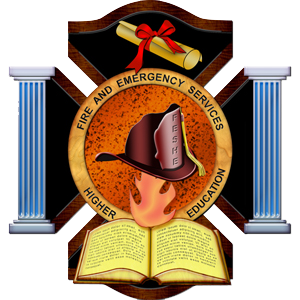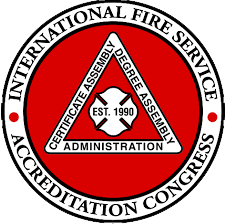Fire Science Technology Program Details
Questions? Contact Us!
Brent Conklin
Program Chair
bconklin1@dmacc.edu
515-964-6697
Need Help Getting Started?
DMACC
Admissions Office
admissions@dmacc.edu
515-965-7337
Mission
The mission of the DMACC Fire Science (FS) program is to help students develop state of the art skills and knowledge for professional fire protection.
Success requires a team effort. Fire Science faculty and staff strive to meet the needs of all FS students, and students are expected to meet their academic and citizenship obligations.
This program is designed to prepare individuals who have little or no experience with the firefighting profession for entry-level positions in the fire service industry. This program is also designed to allow experienced firefighters to receive awarded credits for knowledge gained through training and certifications through the Alternative Credit process, after which their learning can be expanded by successfully completing additional courses to complete the degree.
Fire Science Technology, AAS Degree
This track is designed for students who want to begin training for a career in the fire service industry. Practical technical instruction is designed to meet fire and life safety needs; responsibilities and obligation of fire protection in engineering, building design, plant protection; fire investigation; and all other fields where a hazard may be involved.
The ultimate goal is to assist the student to develop the appropriate skills and knowledge for professional fire protection. In addition to the Loading...Fire Science Technology, AAS.
Fire Protection Technology, Certificate
The DMACC Fire Science program also offers a one-year Loading...Fire Protection Technology, Certificate option.
Graduates of the program have been employed as industrial fire protection specialists, safety technicians, fire insurance inspectors, forest fire fighters, inspection bureau representatives, state fire inspectors and municipal fire department employees, many of whom have earned their degree while employed in their area of specialty.
DMACC Fire Science Program Student Achievement Data
Fire Science AAS
| Academic Year | Incoming Students | Graduation Rates | Employment Rate* |
|---|---|---|---|
| 2020-2021 | 18 | 2 | |
| 2019-2020 | 11 | 6 | 90% |
| 2018-2019 | 15 | 8 | 75% |
| 2017-2018 | 13 | 1 | 29% |
| 2016-2017 | 3 | 3 | 100% |
| Total | 60 | 21 | --- |
*Percentage based on graduate survey responses.
Fire Specialist CSP
| Academic Year | Incoming Students | Graduation Rates | Employment Rate* |
|---|---|---|---|
| 2020-2021 | 2 | 0 | 0% |
| 2019-2020 | 2 | 3 | 100% |
| 2018-2019 | 0 | 0 | 100% |
| 2017-2018 | 0 | 0 | 0% |
| 2016-2017 | 2 | 2 | 100% |
| Total | 6 | 11 | --- |
*Percentage based on graduate survey responses.
Fire Science AS (in 2015, Fire Science AS program changed to AAS degree)
| Academic Year | Graduation Rates | Employment Rate* |
|---|---|---|
| 2016 | 6 | 33.3% |
| 2015 | 2 | NA |
| 2014 | 5 | 50% |
| Total | 13 | --- |
*Percentage based on graduate survey responses.
State of Iowa Firefighters Salary Data
2019 State of Iowa Firefighters annual median income is $46,640
2019 State of Iowa Firefighters median hourly wage is $22.89
- Data retrieved from U.S. Bureau of Labor Statistics.
Central Iowa is home to some of the fastest growing cities in America. With that substantial growth, comes a need for firefighter positions. According to the Bureau of Labor Statics, employment of firefighters is projected to grow 7 percent from 2016 to 2026, about as fast as the average for all occupations. Career departments, volunteer departments and combination fire departments combine to comprise approximately 700 fire departments throughout the state of Iowa. The Fire Science Technology program provides learning opportunities which introduce, develop and reinforce academic and occupational knowledge, skills and attitudes required for job acquisition, retention and advancement.
At the completion of the plan of study, students with an Associate in Applied Science in Fire Science will be able to:
- Identify, examine and apply current and emerging concepts and practices in Fire and Emergency Services
- Identify apparatus, equipment and tools essential for successful fire department operations.
- Apply strategies, tactics and Incident Command/Incident Management skills to emergency incidents
- Relate the building construction type to its anticipated fire behavior in emergency situations.
- Recognize the characteristics of fire behavior and how modern and legacy fuels greatly affect firefighter safety
- Exhibit an understanding of basic principles of safety related to firefighter life safety initiatives and focusing on the need for cultural and behavioral change in Fire and Emergency Services
- Describe the importance of fire prevention and how it relates to the community, public education and the fire service.
- Compare various types of fire protection systems and explain each systems role in the fire service.
Additionally, the program provides opportunities to retrain and upgrade present knowledge and skills. With two levels of education, the DMACC Fire Technology Program offers different paths to different jobs within the fire service.
The Central Iowa Fire and EMS Testing Consortium is a group of metro Fire Departments with a mission to provide entry level written and physical ability examinations for aspiring candidates.
In cooperation with Des Moines Area Community College (DMACC) and the DMACC Fire Science Program, this consortium allows an efficient and effective method for candidates to become eligible for hire in the group of metro Fire Departments.
Meeting the requirements of the consortium and upon completion of the written and physical ability exams, candidates are able to apply for employment opportunities within the group.
Learn More

